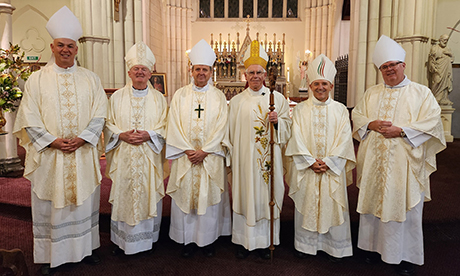Abuse in church contexts “has been a widespread problem” that is now being dealt with, according to Professor David Tombs, the Howard Paterson Chair of Theology and Public Issues at the University of Otago.
It’s been prevalent in the Catholic Church, in other churches and within wider society, he says.
Tomb’s view is shared by Dr Rocio Figueroa, a theological researcher at the Te Kupenga Catholic Leadership Institute whose focus is pastoral response for survivors of Church abuse.
Figueroa says the Church, in the wake of damning findings about a lack of accountability for both State and Church care, is moving to take more accountability.
Figueroa’s research focuses on pastoral responses for Church abuse survivors. She believes the Church is doing its best to respond to victims and deal with abusers.
While she said there was always more that could be done, she was “grateful and happy there is now more accountability. The Bishops are doing the work they need to” she says.
Tombs makes the point that “Policies and procedures have improved significantly in recent years, and Pope Francis and other Catholic leaders have often spoken out on the urgent need to address the abuse crisis and the damage it has caused”.
“In the past, the focus of the Church has been to protect its institutional reputation. This has often come at great cost to survivors who have been disbelieved and even blamed when reporting abuses.
“The Catholic Church has sought to be more survivor-centred in its response to abuse disclosures, but a lot of trust has been eroded and will be hard to re-build” he says.
“The problem is not limited to the Catholic Church—abuses have been prevalent in other churches and within wider society—but serious failings in the Catholic Church have often been in the spotlight in media coverage” he said.
Tombs described the Church’s response time to sexual abuse as being “painfully slow”.
Priest defrocked
Tombs and Figueroa’s comments come amidst the defrocking of a priest in New Zealand.
The priest was defrocked by Pope Francis following complaints of an alleged rape by a priest and after all the priest’s Church appeals were exhausted.
The alleged rape occurred during a house blessing at the home of the complainant.
“When a priest commits grave crimes, for example abuse of a minor, a sexual solicitation under the sacrament, all these crimes are reasons that can make a priest be dismissed” says Figueroa.
This is just the third defrocking in New Zealand she notes.
The alleged rapist, his victim and the bishop
Defrocking the priest who allegedly raped a Hamilton woman was all very well but it took a long time, says a woman whom the Waikato Times calls Cathy to protect her identity.
But defrocking a priest is “basically our capital punishment” explains Bishop of Hamilton Richard Laurenson.
“As rare as a hanging would be on one level.”
However Cathy told the Waikato Times she remained unhappy at the Church’s delay in moving against the priest and said she feared “he will do it to someone else”.
The Waikato Times understands the man still resides in New Zealand, and complaints about his behaviour date back at least 15 years.
Police job now
“It is now up to the police to take matters any further should they feel they can” Laurenson told Cathy.
Police say they cannot comment on the case.
Source
